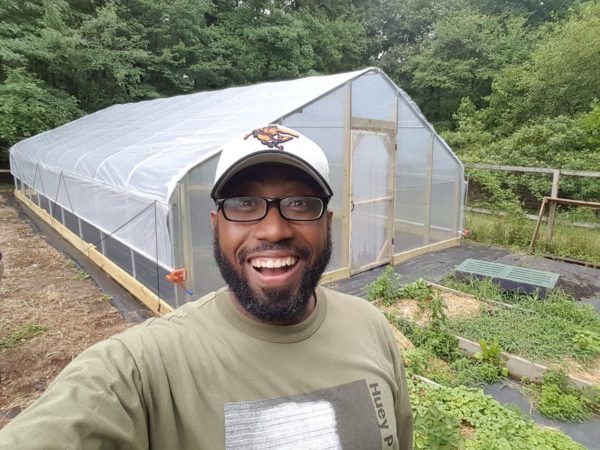A Baltimore pastor has taken the reins and helped solve a food scarcity problem plaguing his church. Now he’s built a network of churches across state lines that have helped feed people with good produce, a move that also benefits Black agriculture.
Rev. Dr. Heber Brown III noticed that many members of Pleasant Hope Baptist Church suffered from diet-related illness and did not have access to healthy, affordable foods. He decided to plant a garden on a 1,500-square-foot plot of land in front of his church and saw a significant increase in the congregation each Sunday. Soon he wondered what impact such a thing could have on other churches, and in 2015 he created an organization that would solve that issue in other places of worship called the Black Church Food Security Network.
It looks to create, “a sustainable, community-centered, food system supported by Black Churches and Black Producers, led by those most directly affected by food inequity,” according to the website.

Rev. Dr. Heber Brown III’s Black Church Food Security Network has grown to include churches in two other states and Washington, D.C. (Photo: @heberbrown/Twitter)
“We have people contacting us from all over — different religions, different parts of the city. … The phone is always ringing, the emails are always coming in from churches saying, ‘Hey, we want in,’” Brown told WTOP Feb. 4. “They see it as important, they recognize that farmers markets are great, but there are gaps that farmers markets are not filling, and African-American farmers, in particular, have unique struggles.”
In the four years since its launch, BCFSN has spread beyond Pleasant Hope and into 10 congregations across the city. Most participating churches are located in Baltimore’s food deserts, which have been rebranded in recent years as “healthy food priority areas.” Additionally, there are churches in Maryland, nearby Washington, Virginia, and North Carolina involved in the organization.
Additionally, the organization has hosted post-Sunday-service pop-up markets from Black farmers in the form of Soil to Sanctuary Community Markets.
Presently, Brown, who noted the links between spirituality and agriculture are deeply rooted in scripture, is focused on also getting churches to make the most of their classrooms, kitchens and land, which are mostly only used one day each week.
“I think that’s a gross waste of resources,” Brown said. “If your Monday through Saturday approach can include agriculture initiatives — farming or gardening or supporting a local farmer — that’s a big-time plus.”
The food garden network provides a way to create a long-term solution to food scarcity and hunger-related issues. It’s more than charity events like annual food drives, which are few and far between.
“And I think solutions for the long haul have to spring from those who are most directly affected by the issue,” Brown said. “Food is always going to be a priority for our communities. And churches and faith-based organizations, I got a strong hunch, will always be here.”


